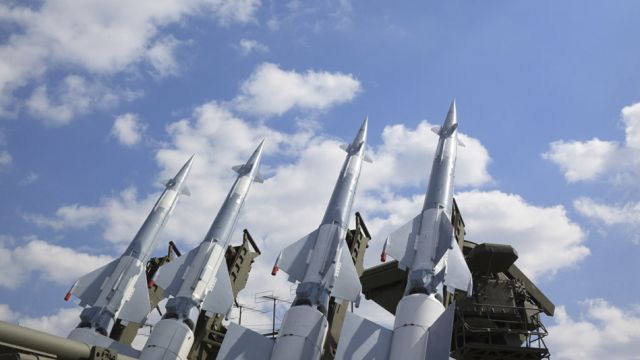
by Editor | May 25, 2021 | World
 Seoul : Top nuclear envoys of South Korea and Japan held talks in Seoul on Thursday about the issue involving the Democratic People’s Republic of Korea (North Korea)’s nuclear and missile programs.
Seoul : Top nuclear envoys of South Korea and Japan held talks in Seoul on Thursday about the issue involving the Democratic People’s Republic of Korea (North Korea)’s nuclear and missile programs.
Lee Do-hoon, South Korea’s special representative for Korean Peninsula peace and security affairs, met with his Japanese counterpart Kenji Kanasugi at the foreign ministry building of South Korea in Seoul.
The two envoys exchanged in-depth opinions on ways to maintain the stable management of the Korean Peninsula situations and contain the North’s provocations through diplomatic efforts including dialogue and sanctions, Seoul’s foreign ministry said in a statement.
The bilateral meeting came a day after Lee and Kanasugi had a trilateral meeting also attended by top U.S. nuclear envoy Joseph Yun. On Thursday, a vice ministerial-level meeting was also held in Seoul between the three allies.
Lee and Kanasugi agreed to make more efforts to encourage North Korea to return to a path to denuclearization.
They also agreed to more frequently and closely meet to achieve a common goal of the complete dismantlement of the North’s nuclear program in a peaceful manner, according to Seoul’s foreign ministry.
The Seoul meeting between chief negotiators of South Korea and Japan for the currently stalled disarmament talks came amid rising tensions on the peninsula following the North’s sixth nuclear test in September and the exchange of strident rhetoric between Pyongyang and Washington.
—NNN-XINHUA
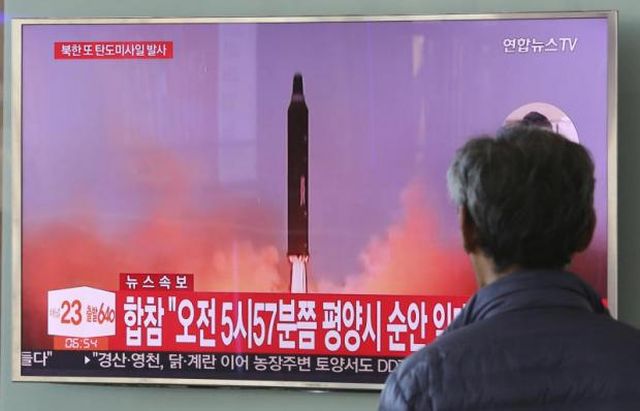
by Editor | May 25, 2021 | World
 Tokyo : North Korea on Tuesday fired a missile over Japan which Prime Minister Shinzo Abe has called the “most serious and grave ever” threat to the country, the media reported.
Tokyo : North Korea on Tuesday fired a missile over Japan which Prime Minister Shinzo Abe has called the “most serious and grave ever” threat to the country, the media reported.
The missile was fired just before 6 a.m. in Japan. The launch set off warnings in the northern part of the country urging people to seek shelter, reports CNN.
It flew over Erimomisaki, on the northern island of Hokkaido, and broke into three pieces before falling into the Pacific Ocean, about 1,180 km off the Japanese coast.
The missile was in flight for about 14 minutes, Chief Cabinet Secretary Yoshihide Suga said at an emergency press conference.
“There is no immediate report of the fallen objects and no damage to the ships and aircraft,” he added.
Pentagon spokesman US Army Col. Rob Manning said the launch did not pose an immediate threat to North America.
Prime Minister Abe condemned the launch as a “reckless act.”
“We have fully grasped the movement of the missile immediately after their launch and have been taking every possible effort to protect the lives of people,” he said, adding “It is a serious and grave threat which impairs the safety and peace of the region.”
Abe told the media that he had a 40-minute phone call with US President Donald Trump to discuss the missile launch.
The two countries have requested an urgent meeting of the UN Security Council, according to Japan’s ambassador to the UN, Koro Bessho.
“The international community has to put more pressure on North Korea,” CNN quoted Ambassador Bessho as saying.
South Korea responded by conducting a bombing drill at 9.30 a.m., to test its “capability to destroy the North Korean leadership” in cases of emergency, a Defence Ministry official told CNN.
Yoon Young-chan, the head of South Korea’s Presidential Office Public Affairs Office, told reporters that Ffur F-15K fighter jets dropped eight one-tonne MK-84 bombs at a shooting range.
The operation was meant “to showcase a strong punishment capability against the North”, he said.
Tuesday’s launch comes just three days after Pyongyang test-fired three short-range ballistic missiles from Kangwon province — of the three, one failed.
Notably, however, it is the the first time the country has successfully fired a missile over Japan since 1998, when it sent a satellite launch vehicle over the country.
—IANS
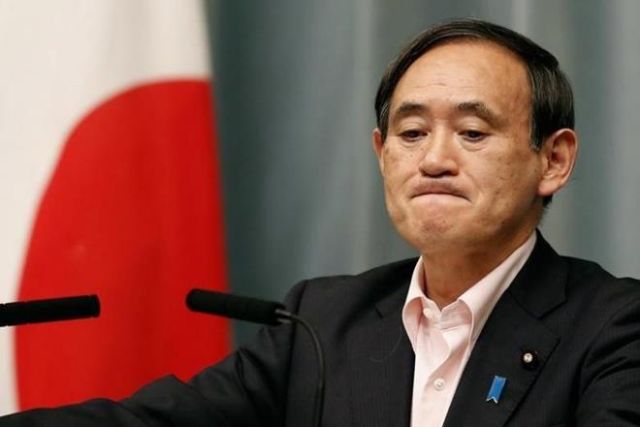
by Editor | May 25, 2021 | World

Japan’s Chief Cabinet Secretary Yoshihide Suga
Tokyo : Japan on Friday approved the freezing of assets of additional foreign firms, due to their links with North Korea, which includes adopting new unilateral sanctions.
The sanctions affect four Chinese and two Namibian companies, as well as one Chinese and one North Korean national, adding to the measures announced by Japan in July, a government spokesperson told Efe news.
Tokyo’s decision involves freezing the assets of those believed to be collaborating with the North Korean regime in exporting coal and sending labour abroad, and is meant to curb capital inflows into the rogue nation, in response to its military program escalation.
As a punishment to those associated with the Pyongyang regime’s weapons programs or raw materials trade, Tokyo already included five companies and nine individuals from China on the list in late July.
Japan’s Chief Cabinet Secretary Yoshihide Suga said during a press conference on Friday here, that Japan believes it is extremely important to pressure North Korea, along with the United States and South Korea.
Tokyo’s decision to expand its list comes after Washington announced on Tuesday the freezing of assets and banning financial transactions with more than fifteen Chinese and Russian entities and individuals for their association with North Korea.
Beijing has opposed the imposition of unilateral sanctions by any country outside the framework of the UN.
The UN Security Council approved new sanctions against North Korea earlier this month, imposed for the rogue state’s two intercontinental missile tests in July, which could reduce Pyongyang’s annual export revenue by $1 billion.
—IANS
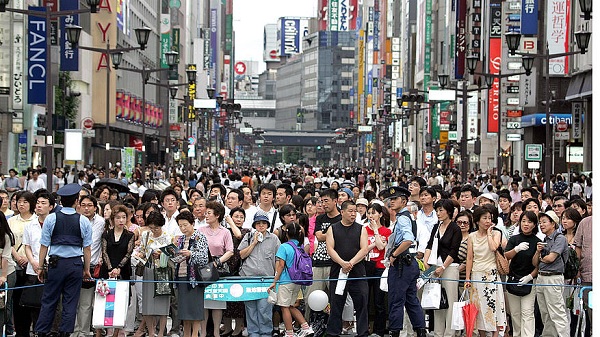
by Editor | May 25, 2021 | World
 Tokyo, (IANS) Japan recorded a 40.7 billion yen ($388 million) trade deficit in May, the first deficit since the beginning of 2016, the government said on Monday.
Tokyo, (IANS) Japan recorded a 40.7 billion yen ($388 million) trade deficit in May, the first deficit since the beginning of 2016, the government said on Monday.
The latest figure contrasts with the 823.2 million yen ($7 million) surplus in April, EFE news reported.
Exports skidded 11.3 per cent year-on-year to 5.09 billion yen ($4 billion) in May, according to data released by the Ministry of Finance.
Imports dropped an annual of 13.18 per cent to 5.1 billion yen ($4 million).
By country, the deficit with China, Japan’s largest trading partner, rose 401.093 billion yen ($3 billion) in April, representing a 4 per cent year-on-year increase.
With its second largest trading partner, the US, Japan recorded a surplus of 345.63 billion yen ($3 billion), or 14.4 per cent less.
With the European Union, its third largest trading partner, Japan had a deficit of 73,642 million yen ($703 million), a 24 per cent rise compared to April 2015.
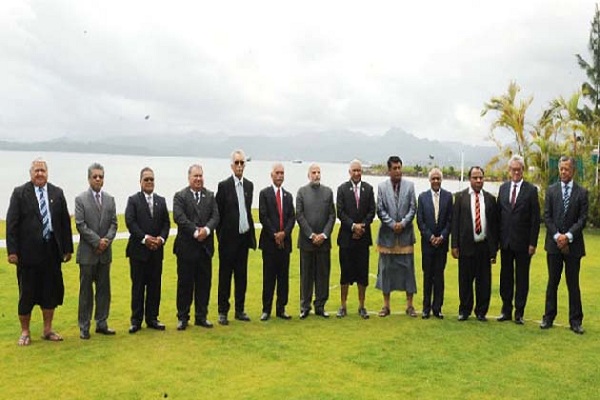
by Editor | May 25, 2021 | Business Summit, Events
 New Delhi:(IANS) India is to host the second edition of the Forum for India-Pacific Islands Cooperation (FIPIC) in Jaipur on August 21, with all 14 countries of the region participating — nine months after Prime Minister Narendra Modi on a visit to Fiji proposed holding of the second summit in India.
New Delhi:(IANS) India is to host the second edition of the Forum for India-Pacific Islands Cooperation (FIPIC) in Jaipur on August 21, with all 14 countries of the region participating — nine months after Prime Minister Narendra Modi on a visit to Fiji proposed holding of the second summit in India.
Of the 14 nations, three would be represented by their respective presidents, one by its vice president, seven island nations are sending their prime ministers, one its deputy prime minister and two are sending a senior minister to the meeting, sources told IANS.
India provides grant-in-aid of $200,000 to each country every year, an official source told IANS.
“The amount is enough for them, as they are not big countries.”
The meet will see India announce steps in which the countries lack expertise — cooperation in coconut and coir and solar energy, among other initiatives, the sources added.
India’s links with the Pacific Island nations, separated from India by 4,000 miles and two oceans, have been limited, compared to China’s expanding presence in the islands, situated to the east of Australia.
India does not have consulates on the islands, but is “covering them from five different countries — New Zealand, Japan, Philippines, Fiji and Papua New Guinea”, the sources added.
India’s first interactions with the Pacific Islands began in the 19th century when Indian indentured workers were brought to Fiji to work in the sugarcane plantations.
Modi, during his visit on November 19 last year, was the second Indian prime minister to visit Fiji in 33 years – after Indira Gandhi.
India’s increasing engagement with the 14 Pacific Islands underlines their growing geo-strategic importance as the countries lie at the centre of a key maritime route rich in resources.
The Exclusive Economic Zone off Papua New Guinea has rich reserves of liquefied natural gas. The other Pacific Island nations too possess resource-rich waters off their coasts, including hydrocarbons.
The 14 island nations – Cook Islands, Tonga, Tuvalu, Nauru, Kiribati, Vanuatu, Solomon Islands, Samoa, Niue, Palau, Micronesia, Marshall Islands, Fiji and Papua New Guinea – although small, also have a vote each in international fora – which holds immense strategic weight for New Delhi as it seeks to play a larger international role.
Modi, in his address to the Pacific Island Leaders Meeting, proposed a slew of steps for closer cooperation, including visa on arrival for all and an e-network to connect the islands to provide tele-medicine and tele-education.
He also announced a Special Adaptation Fund of $1 million to provide technical assistance and training for capacity building to the islands.
Modi also announced a hike in Grant-in-Aid from $125,000 to $200,000 annually to each of the islands for community projects selected by them and a trade office of the Pacific Island nations in New Delhi.
The capacity building offered to the island countries through the Indian Technical and Economic Cooperation (ITEC) scholarships is also highly valued. It provides the students from the region an opportunity to enroll in short-term training courses at universities in India.
The 14 island nations in the South Pacific Ocean have a total population of over eight million.Fiji has a large Indian origin population of over 300,000, comprising nearly 37 percent of its 849,000 population (2009 estimates).
India’s capacity building initiatives include a training programme for elderly women at the Barefoot College in Rajasthan to install residential solar power units and solar powered water desalination plants.

 Seoul : Top nuclear envoys of South Korea and Japan held talks in Seoul on Thursday about the issue involving the Democratic People’s Republic of Korea (North Korea)’s nuclear and missile programs.
Seoul : Top nuclear envoys of South Korea and Japan held talks in Seoul on Thursday about the issue involving the Democratic People’s Republic of Korea (North Korea)’s nuclear and missile programs.



